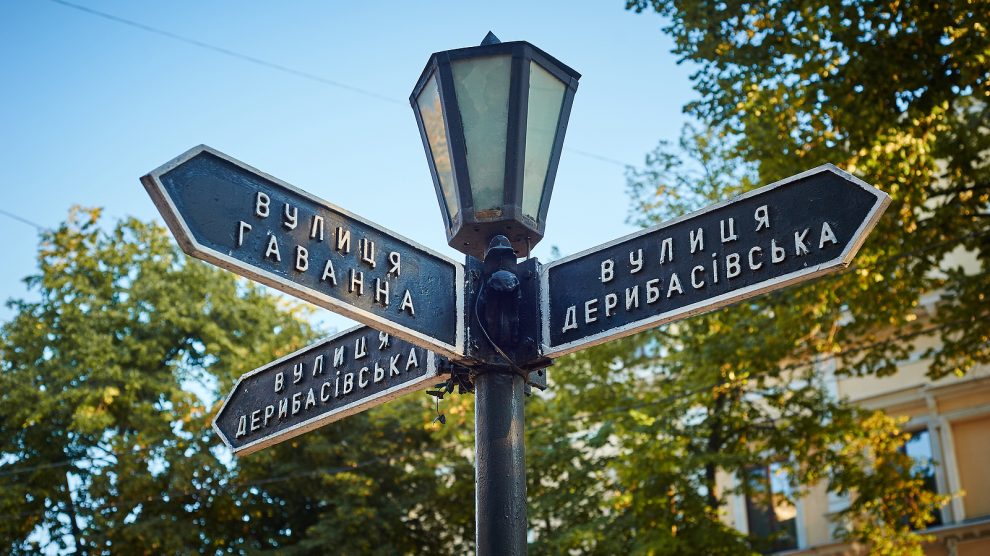Ukraine’s Cyrillic alphabet is not the same as Russia’s. Nor is there anything specifically Russian about Cyrillic. But perceptions matter.
Earlier this week I was crossing the border from Greece into Turkey, and I found myself reflecting on Turkey’s decision to abandon the Arabic script and adopt the Latin alphabet on November 1, 1928.
Nearly a century later, I wondered—could Ukraine benefit from a similar transition to the Latin alphabet, using it as a further step in distancing itself from Russia?
- What Ukraine’s young people want from the country’s education system
- Ukraine’s war for talent: Why investment in education must be a key part of reconstruction
- Five of Ukraine’s finest movies
Language is a powerful tool of identity, and Ukraine’s future lies in continuing to forge its own unique path.
The use of the Cyrillic script is perceived as an optical connection to a Soviet past that still, for some, justifies Russia’s influence over Ukraine, despite their diverging paths. Adopting the Latin alphabet would be a bold and ambitious move, requiring effort and vision. But just like Turkey’s transformation, it would do more than change how words are written—it would redefine how the nation projects itself to the world and where it sees its future.
Like any reform, a transition to the Latin alphabet would not be without its hurdles. The Ukrainian language, with its unique sounds, would need new conventions, much like Turkey developed phonetic rules for its new script. Educational systems would need retooling, and government communication would undergo a significant transformation. However, younger generations—accustomed to using Latin characters on social media and in technology—may adapt quickly, accelerating the process.
Cyrillic is not Russian
While some Ukrainians might see the Latin alphabet as a fresh start, others may resist it, seeing it as erasing history. Such shifts always raise debates about tradition and heritage. It also needs to be pointed out that Ukraine’s Cyrillic alphabet is its own—it’s not Russian. Neither does Russia ‘own’ the Cyrillic alphabet; it was created by Bulgarians.
Nevertheless, Cyrillic of any form is broadly viewed in the western world as Russian. This may be ignorance, but perceptions matter. Ukraine’s challenge is to balance progress and preservation—to honour its past while embracing a new identity.
A very similar step was already taken back in May 2022, when the Ukrainian Orthodox Church announced its full independence from the Moscow Patriarchate—a bold decision that underscored Ukraine’s desire to chart its own path culturally and spiritually, and a valuable precedent: while rooted in centuries of tradition, the decision reflected the need for change in response to modern realities.
The church’s autonomy does not erase its history but recontextualises it within a new, independent framework.
More than a practicality
Switching to the Latin alphabet would signal a decisive move toward Europe—not just politically, but culturally and psychologically. It would send a message, both internally and to the world, that Ukraine’s future lies with the West, not in Russia’s shadow. Just as Turkey’s reform sought to create a new national identity through its script, Ukraine could reinforce its independence with this shift.
It would make it easier for Ukrainians to engage with the global market, remove a barrier of unfamiliarity with other Latin-script languages, making international exchange smoother. More than a mere practicality, this could create stronger cultural and economic bonds with Europe.
Just as Turkey’s language reform was part of Atatürk’s modernisation drive, Ukraine’s adoption of the Latin alphabet could symbolise a break from authoritarianism and mark the start of a new era.
As the country moves forward, whether through educational reforms, church autonomy, or political alliances, every step away from Russia strengthens Ukraine’s identity. A new alphabet could become the next chapter in this journey.
Unlike many news and information platforms, Emerging Europe is free to read, and always will be. There is no paywall here. We are independent, not affiliated with nor representing any political party or business organisation. We want the very best for emerging Europe, nothing more, nothing less. Your support will help us continue to spread the word about this amazing region.
You can contribute here. Thank you.


